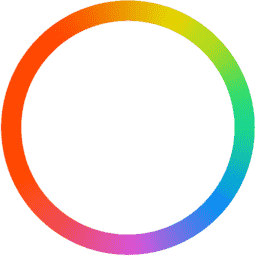Understanding Vitamin Deficiencies: Symptoms, Causes, and How to Increase Vitamin Levels
Only a few people are aware of the fact that various vitamins serve different functions in the body and if a person fails to meet the prescribed level of the required nutrient, then it may create unappealing ailments. Wouldn’t it be fascinating to discover how vitamin deficiencies can lead to such contrasting ailments and how it can be altered? In this essay, we will elaborate on how deficiencies of vitamins can be determined, the varying consequences they can lead to, and their solutions including integrating them through vitamin supplements or adopting an alternative approach, such as altering one’s lifestyle.
1. Vitamin D Deficiency
As most people can relate, fatigue and tiredness, depression, weakness and pain in the body, even hair loss in some individuals are signs indicating a deficiency that must be treated as an emergency. But what causes such severe situations? An Explanatory answer could be, a cause such, living in a climate where it is difficult to get sunlight. Altering those kinds of situations can be as simple as altering one’s diet, adopting a different lifestyle, or even doing both all together.
How to Increase Vitamin D Levels:
It is no secret that simply going out in the sun can alter your nutrient levels — second skin. Depending on the weather or person, one must spend some time outside or integrate certain things into their meal, given the wide benefits it provides. Not only does doing that acclimatise a person with the climate, but it also builds endurance and lowers the risks of getting multiple skin related diseases. By getting exposed to the sun or altering one’s diet, such as adding foods rich in vitamin D like salmon, egg yolk, and fortified milk and cereals, can dramatically shift vitamin levels in the body and lower the chance of experiencing mental health disorders like depression.
Supplements: Because patients can solely rely on diet and sunlight in regards to vitamin D, if such means do not suffice, patients are advised to use vitamin D supplements after consulting their physicians.
2. Vitamin B12 Deficiency
Symptoms:
- Chronic Fatigue
- Confusion
- Numbness in extremities
- Lack of breath and light-headedness
- Yellowish tint on skin surface
Causes:
Elderly people and vegetarians are highly susceptible to vitamin B12 deficiency due to their physical make up, same is the case for those suffering from Crohn’s disease or undergoing medicinal treatment. Vitamin B12 is essential for nerve function as well as DNA and erythrocytes synthesis.How to Increase Vitamin B12 Levels:
- Dietary Sources: Includes the consumption of more animal products like meat, fish, pultry, egss and dairy. For vegetarians: Fortified cereals and nutritional yeast blends are most suitable.
- Supplements: For severely deficient patients, especially vegans and those experiencing absorption challenges, oral medications or B12 injections may be required.
3. Hypovitaminosis C
Common symptoms include:
- Recurrent infections and frequent outbreaks of cold
- A tendency to bleed easily
- Slow recovery from cuts
- Brittle, dry, and breaking strands of hair
- General weakness and trouble relaxing
- Swelling of joints accompanied by pain
Etiology:
Scurvy, also known as Vitamin C deficiency in its critical stage, is rare in people of developed nations but can be found in those suffering from certain medical conditions or do not consume enough variety of fresh fruits and vegetables. Among the other factors that interfere with vitamin C absorption are smoking and alcohol habits.
How to elevate Vitamin C levels:
- Foods: Incorporate into your diet more citrus fruits (oranges, lemons, grapefruit), strawberries, bell peppers, broccoli, and spinach; fresh raw vegetables are great sources too.
Vitamin C supplements are easily available in health stores and are obtainable in the form of tablets and liquids for those who are unable to get sufficient vitamin C from foods.
4. Vitamin A Deficiency
Common symptoms include:
- Unable to see in dim light
- Having dry eyes and skin
- Frequent episodes of infection
- Doing so takes longer after cutting oneself
- Getting skin problems such as acne or dry patches
Etiology:
Vitamin A deficiency can often be seen in people of underdeveloped nations but people on a restrictive diet or with absorption problems can also suffer. It’s an essential vitamin for vision, immunity, and skin health.
How to Increase Vitamin A Levels:
- Dietary Sources: Increase your intake of carrots, sweet potatoes, spinach, kale, and liver. These orange and green vegetables contains beta-carotene which the body converts into vitamin A.
- Supplements: If required too, vitamin A supplements are okay to add in your regime but ensure to restrict adding too much to the program, as high doses can be toxic.
Iron Deficiency (Not a vitamin but important) Causes:
Symptoms:
- Extreme fatigue
- Pale skin
- Shortness of breath
- Dizziness and headaches
- Cold hands and feet
- Brittle nails
Causes:
Caused primarily due to blood loss which can include heavy menstruation or internal bleeding, iron deficiency is the most prevalent nutritional deficiency across the globe followed by lack of consumption of iron fortified fortified foods or the body’s inability to absorb iron.
How to Increase Iron Levels:
- Dietary Sources: Make some changes in the regime and include red meat,beans, lentils, tofu, poultry, and added cereals which have iron. Including a glass of orange juice or any vitamin C rich food along with the meal increases absorption of iron.
- Supplements: Iron supplements are available if iron levels are too low but ensure to have them under doctor’s supervision as they can have side effects like constipation.
General Tips for Maintaining Adequate Vitamin Levels:
- Multivitamin Nutrition: Good nutrition is the greatest way to obtain all the vitamins that the body needs. It’s great to eat whole foods, which include a lot of fruits, vegetables, lean proteins, and whole grain products.
- Consistent Screening: Where there are concerns about the deficiency, a blood test should be done. Regular follow ups can help in identifying deficiencies at earlier stages.
- Controlled Use of Vitamins: Supplements have their role, but they should never replace proper nutrition. Taking too many supplements makes you vulnerable to toxicity and other health complications.
Final Container
Deficiency in vitamins may be damaging to the health and well being, however, such deficiency may also be easily avoided and treated. Such optimum nutrition can help in modifying symptoms as well as support restoration and maintenance of the desired level of vitamins within the body. In case there are still doubts regarding the status of vitamins within your body, it is best to be referring to a medical practitioner on this one.
Explore: Mental Health Awareness: Strategies for Managing Anxiety and Depression



















